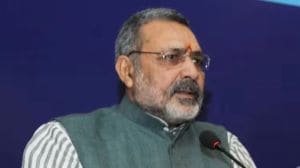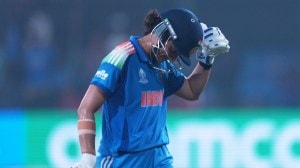The beginning of trust by Francis Fukuyama…
In The post 9/11 world, when weapons of mass destruction are seen to have combined with ‘‘Islamic terrorism’’, the creat...

In The post 9/11 world, when weapons of mass destruction are seen to have combined with ‘‘Islamic terrorism’’, the creation of ‘‘trust’’ is the most important challenge before the international community.
Speaking at the Inaugural Hindustan Times Leadership Initiative Conference, entitled, ‘‘Peace Dividend — Progress for India and South Asia’’ here today, Francis Fukuyama, professor of International Political Economy at the Paul H. Nitze School of Advanced International Studies, Johns Hopkins University, said trust is the lubricant for nation-building, it is critical for the national economy, works on formal (courts) as well as informal (cultural values) levels and creates ‘‘social capital’’ which is just as important as physical capital. ‘‘Trust’’ is critically important for economic progress. Although he dwelt at length on the dilemmas of Bush’s foreign policy, he also stressed the importance of ‘‘trust’’. For trust to become institutionalised in society, there must be a ‘‘common civilization’’, a ‘‘common set of values’’, and a common aim, namely the achievement of liberal democracy.
In order to create ‘‘trust’’, there must be a ‘‘multiplication of institutions’’ with ‘‘overlapping mandates’’, all of whom become ‘‘alternative sources of legitimacy for democracy and human rights’’. Individuals, as well as sovereign states, must be united by constant participation in ‘‘common public spaces, which are the source of trust’’.
Fukuyama, for many years a nuts and bolts diplomat in the US administration before becoming, as he is now described, ‘‘a political philosopher’’, became an overnight celebrity with his essay The End Of History that he wrote after the fall of the Berlin wall and the collapse of the Soviet Union. Liberal democracy, Fukuyama wrote, was no longer just a western concept.
While criticising Bush’s ‘‘coalition of the willing’’ as one characterised by a ‘‘narrowness of vision’’, he is at pains to point out that it was NATO firepower that destroyed dictator Milosevic and restored peace in Bosnia. Military power is all right, but it must be backed by legitimacy, because as the US is seeing in Iraq, ‘‘power without legitimacy breeds its own undermining’’.
The big question now is the division of the world into those states that are sovereign and those that are not and ‘‘who has the right to intervene in another’s sovereignty’’.
Drawing a parallel between India and China, Fukuyama pointed out that China has shed its complex about being the ‘‘outsider’’ and the ‘‘victim’’ and emerged as an equal participant in the international community. Given its growing economic strength, China has embarked on a ‘‘neo-Bismarckian’’ foreign policy to make the world safe for its ambitions. It has begun to settle its border issues, not just with India, but also with the Central Asian countries, often with great cost to itself. India, he noted, must shed the baggage of the colonial era to emerge as a provider of public goods and a backbone for creating international ‘‘trust’’.





- 01
- 02
- 03
- 04
- 05


























